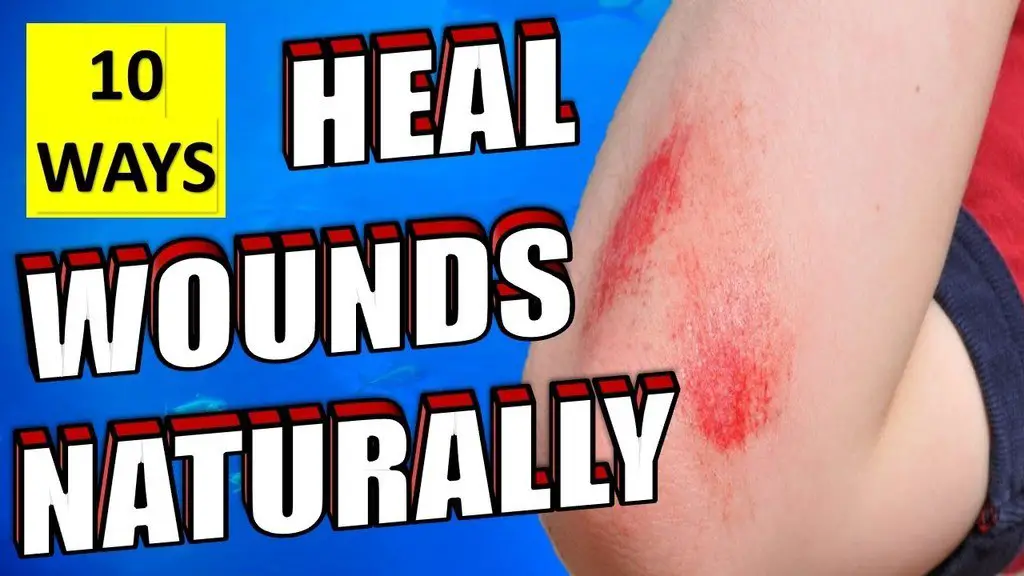Wounds or cuts may feel like minor day-to-day occurrences, but the smallest of injuries can have a significant impact on your health. For instance, a tiny cut can potentially come into contact with harmful bacteria, leading to an infection that leaves you seriously ill.
Open wounds are messy, painful, and can severely impair your everyday functioning. It’s essential to do everything you can to speed up the healing process.
Cuts (quite literally) open the doors for all sorts of bacteria to enter your body. With the skin’s protective layer violated, an untreated injury can get much worse before the healing process starts to show any results.
Thus, it’s crucial to treat wounds and cuts right away as soon as they’re inflicted. They need to be disinfected immediately, followed by corrective measures to help your cut heal naturally as quickly as possible. It helps reduce the risk of a scrape or cut causing permanent damage in the shape of a scar on your skin.
People usually resort to over-the-counter ointments to treat wounds, which may somewhat aid the healing process. However, there are many alternative ways to achieve that outcome naturally. Most of these natural remedies involve kitchen ingredients that are commonly lying around in peoples’ cupboards. If you’ve got no idea about them, this article is just for you.
We’ll look at the 10 more effective home remedies to prevent cut infections and heal wounds naturally. Let’s get into it!
Here are 10 of the best home remedies for naturally healing wounds and preventing infection:
1. Turmeric
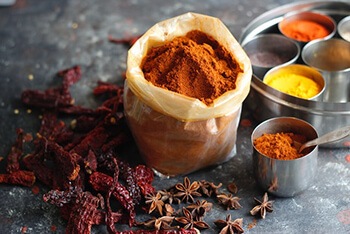
Turmeric has been widely used as a key flavoring essential in Indian curry recipes, but we’ve only now started to become aware of the miraculous healthcare potential this spice has. It’s been used for medicinal uses by herbalists for ages, but in recent years, it seems to have found its way into the mainstream of organic natural remedies.
Experts believe turmeric to be a natural antibiotic and antiseptic agent. With the help of an ingredient called curcumin, it can regulate collagen and blood clot formation, which plays a vital role in healing wounds faster.
If you’re having trouble stopping the bleeding on any of your wounds, applying raw turmeric tends to bring it under control.
Turmeric also has essential uses in its powdered and tea forms. To speed up the healing process for your wound(s), have some turmeric tea during the day or add a tablespoon of the spice in powdered form to your meals.
2. Onion
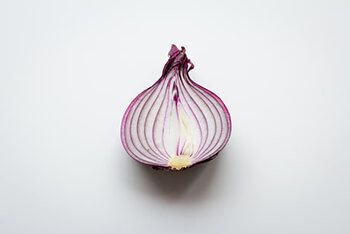
Onions are another common kitchen ingredient that can come in handy if you’re dealing with a scrape or a cut. They help prevent infections from setting into the wound, as they contain allicin, which is an antimicrobial compound. Onions also have strong anti-inflammatory properties that assist the body’s healing process.
The simplest method to use onions as a home remedy for your cut is to apply it directly to the injury. To do that, blend, crush, or finely chop an onion to form a paste and layer it on top of your wound. Yes, it’ll sting a bit, but leave it on your skin as long as you can. It kills the harmful bacteria that can otherwise penetrate the wound.
If you can add some garlic to the paste, that’s bonus organic remedy points!
3. Coconut oil
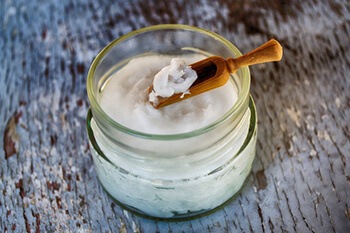
One of the healthiest types of edible oil, next up on the list is coconut oil! Its benefits go way beyond kitchen uses; it’s got antibacterial and anti-inflammatory properties, works as an excellent moisturizer, and can also be used as a fantastic home treatment tool to deal with open wounds, scrapes, or cuts.
If you’re worried about permanent scars that may linger even after your cut has fully healed, coconut oil is the best thing you can use to naturally prevent it.
Using coconut oil on your wound is just as easy as it sounds. All you’ve got to do is layer a few drops over the wound and cover it up with a clean piece of cloth. It’s advisable to heat the oil to liquidize it, but make sure it’s somewhat cooled when you apply it to the wound. Try to keep the oil on the affected area for as long as you can, and re-apply it several times every day to boost the healing process.
4. Aloe vera
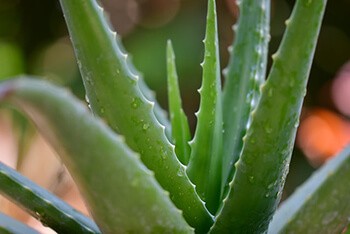
Aloe vera is one of the best gifts of nature for dealing with skin-related issues, and that includes injuries, scars, cuts, and scrapes!
You’ve probably seen it listed as a key ingredient in many skincare products, mostly because the gel coming from its plant is an incredibly effective, analgesic, soothing, and anti-inflammatory agent for the skin. Aloe vera gel has phytochemicals, which have been proven scientifically to help reduce inflammation and ease the pain that comes with scrapes and cuts.
Aloe gel is widely available in most health stores and pharmacies, but the best way to take advantage of it is to have a plant at home. Simply apply a small amount of the gel to your wound and leave it to dry onto the affected area. In about 20-30 minutes, use warm water to clean the area and gently pat dry with a clean towel.
To use aloe vera internally, you can also drink aloe juice to help speed up healing.
5. Honey
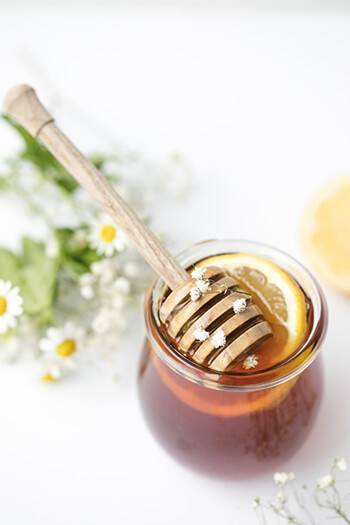
Although using honey is the stickiest remedy on this list, it’s one of the easiest ways to speed up the healing process effectively by applying it to a wound or a cut.
Honey can dehydrate bacteria, which keeps it from causing infections through an open wound. Honey is also popular in the organic remedy world for its fantastic anti-inflammatory and anti-fungal properties, which keep infections at bay.
To help heal your scrape or cut faster, you don’t need to brew up a special honey-based concoction. All you need to do is simply apply a honey coat over your injury and leave it on for as long as possible before washing it away. Repeat is two to three times a day to help the wound close up and repair more quickly.

6. Garlic
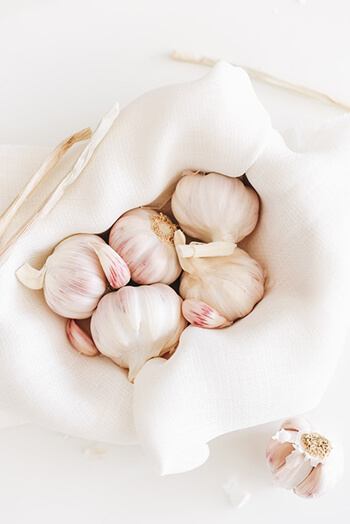
Most of us are already aware of garlic’s fantastic potential as a natural remedy against common colds and coughs, mostly owing to its extraordinary antibiotic and anti-microbial properties.
Garlic’s same properties also come into play in making it an excellent home treatment for wounds and cuts.
Just like turmeric, garlic can also be used to stop the bleeding on an open wound almost instantly. It can also help promote healing and reduce pain. Since garlic boosts the natural defenses of the body against infections, it also encourages internal healing.
To use it, simply make garlic paste by crushing a few cloves together, and apply it onto your wound directly over the cut. If it’s bleeding, garlic normally stops it right away by stemming the blood flow.
As your body works on healing the wound, you should try to add more garlic to your diet as it helps your body ward off harmful bacteria and fight infections.
7. Lavender oil
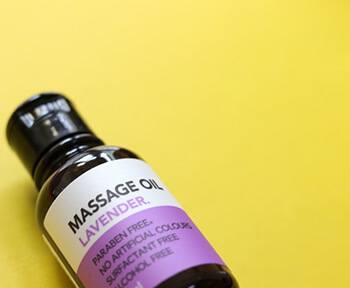
Almost all of the essential oils are great for the skin in one way or another, but lavender specializes in promoting the skin’s healing process. Thanks to lavender’s anti-inflammatory properties, it can reduce swelling and help wounds heal quicker. It’s also antimicrobial, which prevents harmful bacteria from inflicting additional damage to the cut or injured area. As a bonus, the relaxing properties that lavender is well-known for will also help reduce your stress levels.
You’ll find lavender oil easily online or in your nearest health stores. If you don’t have some on your shelves already, it’s about time you invested in it, because it’s one of the most popular aromatherapy essential oils.
To use it on your wound, dab several drops on the cut and leave it on for as long as you can to promote healing.
8. Cinnamon
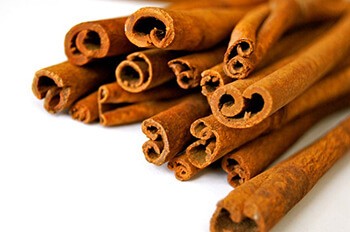
While it’s mostly reduced to being a fragrant Christmas spice, cinnamon has tremendous applications in the realm of organic medicine. It can effectively fight infections and help reduce inflammation.
According to recent studies, it’s been found to possess strong antimicrobial properties which help boost the healing process. It contains cinnamic acid and cinnamaldehyde, which both help with pain relief and have significant antioxidant properties. Cinnamon hence turns out to be a useful home remedy for curing burns, scrapes, and cuts, as it heals the skin, reduces inflammation, and leaves a cooling effect to soothe the pain.
To make a paste out of cinnamon for your wound, simply mix a teaspoon of it with a bit of water or honey, and apply it directly to the cut. It should start working immediately to promote healing! To get results quicker, add some cinnamon to your breakfast items or tea to help the body heal internally as well.
9. Tea tree oil
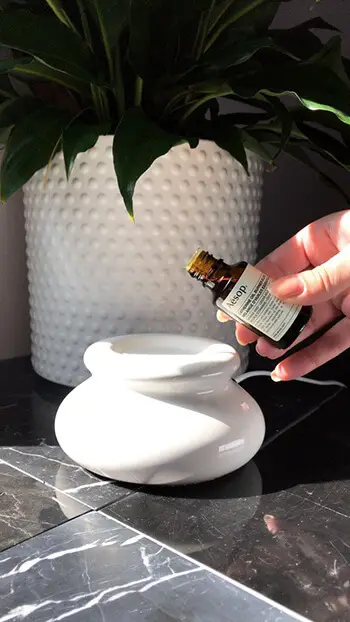
Like lavender, here’s another essential oil that’s found to be amazing at treating cuts at home! It’s a common ingredient in many skin and haircare products, and it’s known for its ability to treat blackheads, acne, and several skin problems.
Tea tree oil comes with strong antioxidant and anti-inflammatory properties that make it a great natural remedy for dealing with scrapes and wounds. Experts suggest that it can even provide pain relief, especially in bacteria-caused wounds.
With tea tree oil, all you need are a few drops to speed your wound healing up by a lot! You can choose to mix it with another carrier oil, such as coconut or lavender, to multiply its healing potential. Let it sit on your skin for as long as you can before washing it off. Until your wound is fully healed, regularly apply it once a day.
- .5-ounces of Neosporin Original Topical Antibiotic Ointment by the #1 doctor recommended brand for treating minor cuts, scrapes and burns
- Wound care ointment is formulated with neomycin sulfate, bacitracin zinc and polymyxin B antibiotic ingredients to provide 24-hour infection protection for minor wounds
- Topical first-aid ointment nourishes skin to minimize the appearance of scars after healing
- Contains HeliDerm Technology that provides a nourishing environment for skin to heal, resulting in healthier looking skin after use
- ⛑ WOUND CARE PRODUCTS: Vashe Wound Solution OTC helps to cleanse the wound and accomplish the goals of wound bed preparation in a biocompatible, safe, effective, and natural way. The hypochlorous acid (HOCl) acts as a preservative that inhibits microbial contamination within the solution.
- ⚖️ THE RIGHT BALANCE: Powered by a patented and proprietary electrochemical process called Natural Zone Technology 5.5, Vashe Wound Solution OTC is titrated to a skin-friendly pH of 5.5 to mimic the body’s natural antimicrobial defenses and provide an ideal wound healing environment.
- EFFECTIVE WOUND CLEANSING: Vashe Wound Solution OTC preserved with Hypochlorous acid has been tested in-vitro against many common pathogens, including fungi, spores, and multi-drug-resistant bacterial strains. In clinical studies, the organisms are mechanically removed from the wounds in great numbers, allowing the immune system to sustain the reductions.
- 🩺 UPGRADE YOUR WOUND CARE KIT: Vashe Wound Solution OTC is for the management of minor skin abrasions, minor lacerations, minor irritations, minor cuts, and intact skin. Great addition to medical supplies for home care & use with wound dressing.
- BLEEDSTOP IS THE ONLY BRAND NAME BLOOD COAGULANT IN ALL WALGREENS, AND CVS . BleedStop is also available in all RiteAid stores. No other product works as well as BleedStop.
- STOPS BLEEDING UPON CONTACT: BleedStop powder is quick, safe and easy to use on moderate to severe wounds, lacerations, cuts, scrapes and nosebleeds (for nosebleeds see BleedStop Nosebleed Strip product available on ), making it one of the most essential supplies for every day first-aid, such as kitchen cuts and protecting your children. Also a necessity for rigorous outdoor activities such as camping, hiking and cycling, among others where moderate to severe bleeding wounds can occur.
- WORKS FOR PEOPLE ON BLOOD THINNERS TOO: Are you taking blood thinners regularly Be assured that BleedStop first-aid powder will work to control bleeding for you too.
- SAFE and NON STINGING: While BleedStop is used by doctors and in emergency rooms across the country, it can be safely applied on everyone, including kids, whenever needed as it's a non-stinging formula.
- POWERFUL: Made in USA with natural, medical-grade ingredients that work
- RAPID: Begins working immediately to start healing faster
- pH BALANCED: Won’t disrupt skin’s natural microbiome, promotes healing, and is antibiotic-free
- LONG-LASTING: Thick ointment spreads easily to cover the affected area while providing treatment area moisturization
10. Chamomile tea
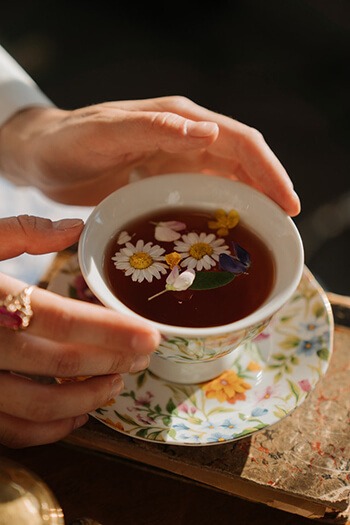
Chamomile is a key floral herb that’s commonly consumed as tea. The natural oils within its plant can considerably speed up the wound healing rate as it helps the skin regenerate new tissue faster.
Like several of the above items, chamomile also has antimicrobial and anti-inflammatory properties that give it significant potential as a natural remedy for treating cuts. It’s been used as a home treatment for injuries for years!
To make the most out of it, moisten a chamomile tea bag with slightly warm water and press it up against the injured or sore area. It can cause numbness to help provide instant relief from pain. It’s best to hold the teabag against the affected area of the skin for as long as you can and then rinse and dab it dry. Repeat it as many times as necessary during the day.
What to avoid
Now that we’ve discussed 10 genuine ways to treat wounds naturally, it’s time to bust some myths.
You may have heard that salt is great when it comes to treating wounds. However, salt can quite easily worsen the wound’s state by encouraging the growth of certain types of bacteria. Before using a saltwater solution to treat your wound, do think twice, as experts suggest against it.
Sugar is also something you should avoid when you’re looking to treat cuts at home. While some studies may have shown positive results regarding sugar’s potential in healing wounds naturally, there’s certainly more research required to make a more reliable claim and understand sugar’s capacity as a healer.
Lastly, butter is also rumored to be a healthy protective coat for wounds and burn injuries. However, that’s not the case at all, as butter sets the stage for bacterial growth, leading to heightened risks of side effects and infections.
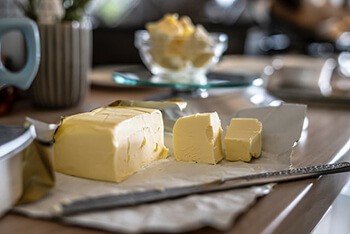
Conclusion
The next time you hurt yourself with a cut or a wound and don’t have an ointment to treat it with, the natural alternatives will have your back! Make sure you make regular use of these ingredients to get the best results. Each of them works well to address different issues that a cut or a wound brings about, so you should find a combination that works best for your situation and regularly apply it until you’re fully healed.
A wound should close up as quickly as possible to minimize its exposure to harmful bacteria that exists in the environment. Certain factors can get in the way of the healing process, including poor nutrition, smoking, and some medications. If you feel like your wounds aren’t healing as quickly as they should, or your wounds or cuts are getting more frequent, it’s best to book an appointment with your doctor to get it professionally checked out.
Keep in mind that the natural remedies discussed in this article are best for dealing with smaller wounds and cuts. In the case of a more severe injury, immediately visit the nearest emergency room to ensure the best course of action for your condition.

